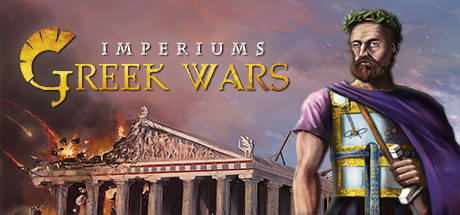Lead one of the many factions of Ancient Greece to victory in this 4X strategy title that carries a surprising amount of weight for it being new entry to the genre.
Type: Single-player, Co-op, PvP
Genre: Strategy
Developer: Kube Games
Publisher: Kube Games
Release date: 30 July, 2020


Overview
Discovering Civilization was one of the defining points in my gaming life. Even as a little kid I was absolutely obsessed with it and couldn’t resist its “one more turn” pull, even though I all too often decided to start over and experience a new world through the eyes of another civilization. Thankfully, I became far more invested in each game as I grew older and now I never stop playing until I see the entirety of my nation’s history completed. Yes, I became an ironman player, or as some of you may call it, a glutton for punishment.
Since that time, the 4X subgenre has expanded rapidly. New titles that could compete with the established giant of Civilization arose and it ushered in a new era of strategy gaming that many of us have been loving ever since. Its popularity comes with a price though; for each Endless Legend or Stellaris that’s born, there are half a dozen others that disappoint. Fortunately, Imperiums: Greek Wars isn’t one of them. I wasn’t sure what to expect with it going in, but it earned my respect by the time I’d even finished the tutorial.
A Familiar Dish with New Seasoning
Imperiums: Greek Wars won’t require much of an investment for 4X veterans to get the hang of. What it will require is an open mind as there are several elements that are integral to others in the genre that have been reworked and even reduced in some cases. As you might imagine given the focus, you won’t be piloting any stealth bombers or developing a cure for cancer. Hell, even though a successful nation will grow and change, a glance over the map as a whole from start to finish is unlikely to be a riveting experience in any area other than the politics of it all. That said, when it’s the story of your kingdom, it does an excellent job of making you feel passionate about it.
Anyone who knows me knows that it’s no shock that I decided to break out Sparta in my first game. It’s been significantly weakened in its recent history by the start of Imperiums’ timeline, but it hasn’t lost its warrior spirit and with the right leader it could rise to greatness again. Even with the warrior culture of the legendary Spartans, I was quick to discover that diplomacy is one of the most important elements to master. Several allies around me would have been vulnerable to my superior military, but they were banded together by pacts the prevented me from moving on them immediately. This effectively froze up my strengths while making me shore up my weaknesses: foreign relations and my lackluster economy. Through some solid manipulation, opened trade routes, and shaken hands, I was finally able to burst out of my bubble and bring the might of my sword arm down on my neighbors after shattering their bonds and building some of my own.
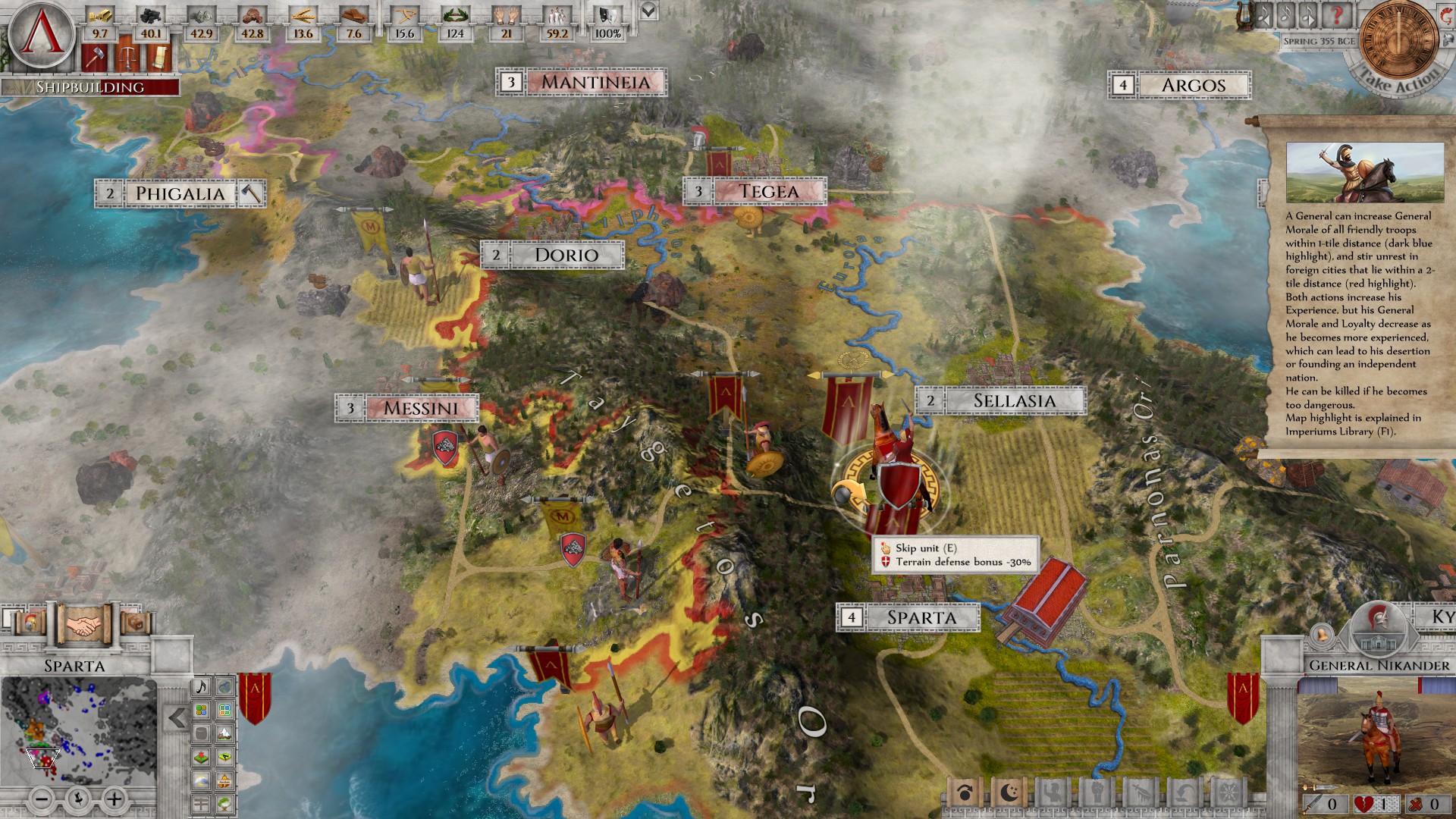
Build an Empire the Gods Fear
Multiple aspects of nation management have been altered to offer an experience that differs a noticeable amount from the big names in the genre. Your population takes an even larger role in your strategy as every single unit uses it not only to be recruited initially but also to recover its health. Direct interactions with cities, in general, are deepened, as a unit’s loyalty to you is based on the city that it was recruited or last healed in. This means that extended wars that involve you conquering large swaths of territory end up being quite the challenge as you’re either leading the charge with disloyal units pulled from local populations or marching loyal ones all the way from home many seasons away from the front. This slowed the usual steamroll that I’m used to driving over my enemies when I go to war in other 4X titles.
Resource management takes an interesting turn here as well. There aren’t a plethora of unique resources to be found that alter the statistics of your empire, instead, there’s a fairly simple batch of them that everything revolves around: gold, coal, stone, iron, food, wood, knowledge, influence, slaves, citizens, and happiness. Everything you do involves these, even trade, where each can be given to other nations in return for some balance of the others. Depending on your government type, you’ll also have to hit within a percentage range of your population being slaves or you’ll take a hit to your overall productivity, so get used to investing in your nation’s birth rate to manage your population levels; uncontrolled growth isn’t a good thing.
Cities aren’t constant unit and building construction factories in Imperiums either. A familiar setup of a tech tree is used for scientific advancement, though the number of buildings and units that it unlocks are heavily restricted by the era that the game takes place in. Idle cities, contrary to what’s been ingrained in us as 4X veterans, are a good thing as they produce more resources than those that are currently engaged in a task for you. This works well enough as you’re far less likely to be cycling through your cities to guarantee that they’re on track and far more likely to seek out a city specifically when you need something from it.
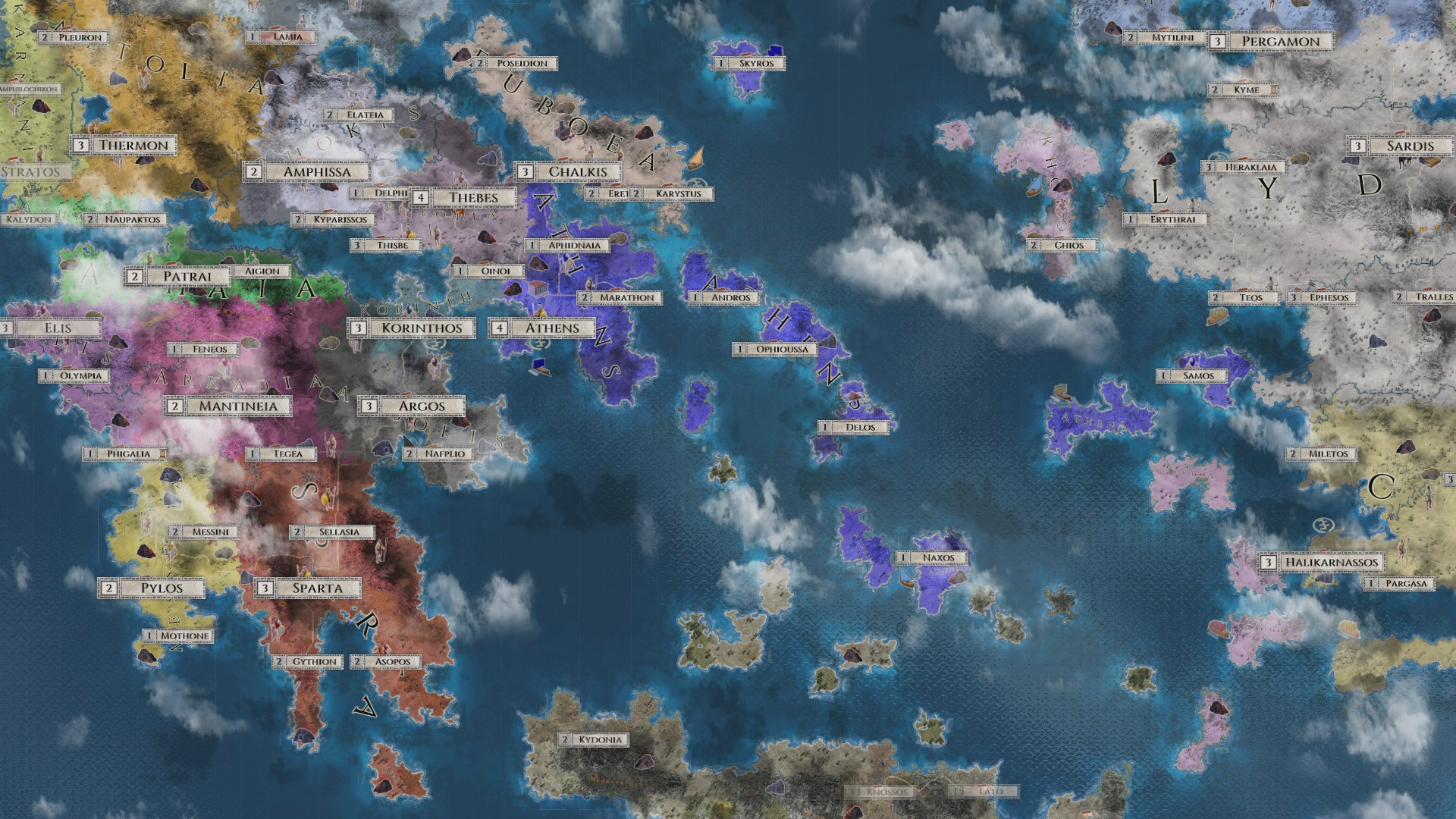
Crush Those That Stand before You
Military conquest is an even larger part of what’s needed to succeed in Imperiums: Greek Wars than many others in the genre. I can’t imagine a pacifist strategy of turtling up would be particularly efficient or especially entertaining given the mechanics that surround it. That said, the mechanics involved in war tend to be rather innovative, and I think that some of the big boy competitors could even learn from them.
Unit stacking returns for those who’ve become used to the one tile per unit rules that have become more common in recent years. There is a cap, though you’ll also want to keep an eye on how well your units are supplied. Supplies are produced and delivered from your cities and the further away your units get from them, the less efficient these deliveries become. Whatever you do, don’t let yourself get cut off or your unit’s morale will tank thanks to the ever-present starvation.
In a shock twist, cities have nothing to do with your borders. New territory is gained by having your military units march over it, whether it’s unclaimed or part of a nation that you’re at war with, it’s yours once you do that. Borders change rapidly and it keeps the world extremely dynamic in a way that you don’t often see. It requires plenty of thought to push forward while protecting your own nation’s interests, but this was one of my favorite innovations of Greek Wars overall.
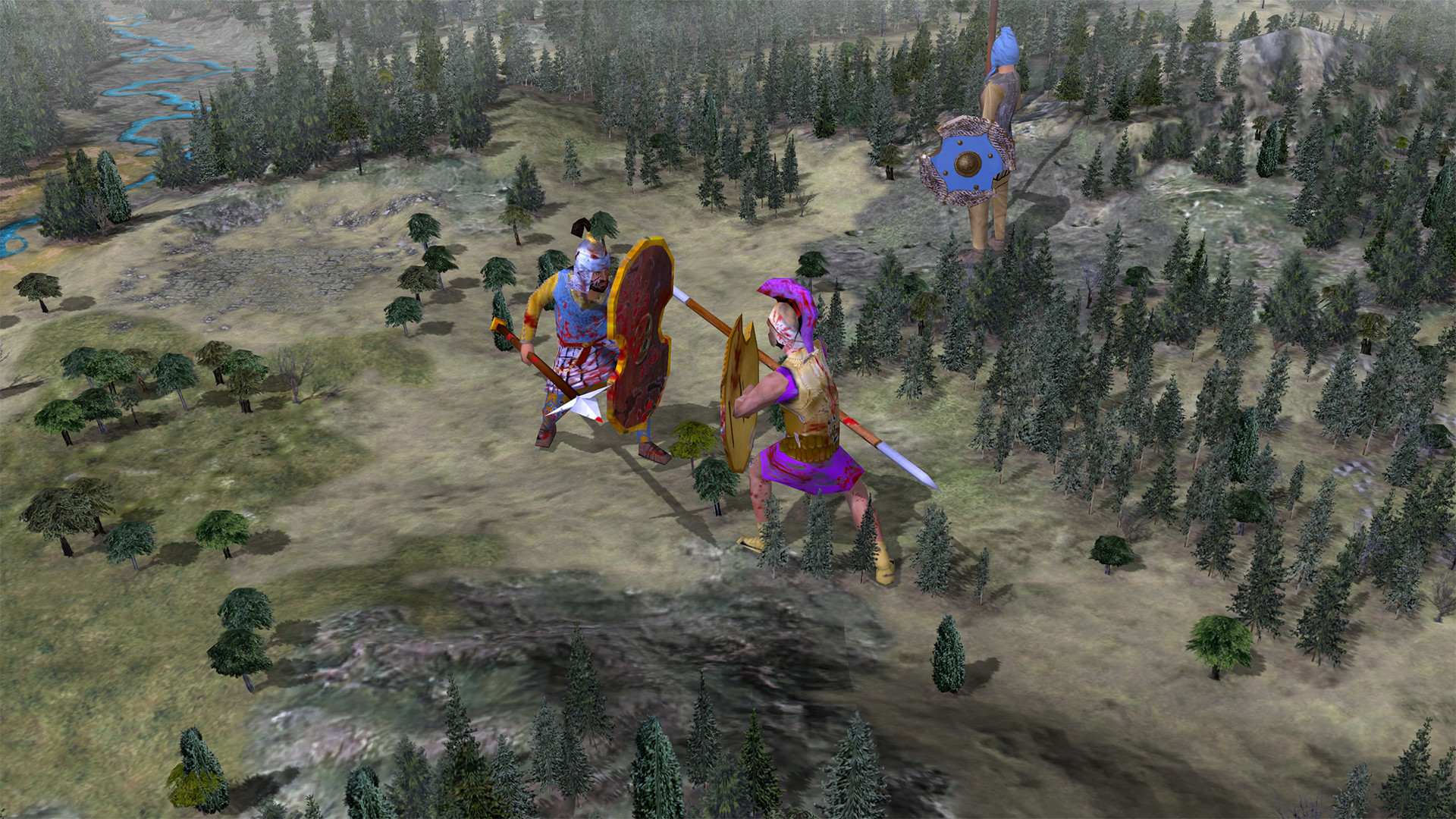
Bros before Hoes
The Imperiums: Troy DLC that came out at the beginning of this month offers a brand new map to play on with an interesting setup of its own. We’ve all likely heard the story surrounding Helen of Troy and the events that followed, so I won’t ask you to sit on my knee while I regale you with the tale. It does make for an interesting scenario-like experience though. As opposed to the more open-ended design of the base game’s pair of maps, Troy has two sides, an alliance made up of several invading nations and poor old Troy, seated on its throne at the center of its territory which makes up most of the map. Troy is incredibly powerful, has a good defensive position, and a solid enough economy, though the barrage of attacks on its coasts and the forays that are sure to strike deeper into its territory will begin to erode all of that. Whichever side you find yourself on, if you know Imperiums: Greek Wars, you already know how to play, but expect something far more similar to the Civilization VI-style scenarios than the discover-the-story gameplay of standard 4X modes.
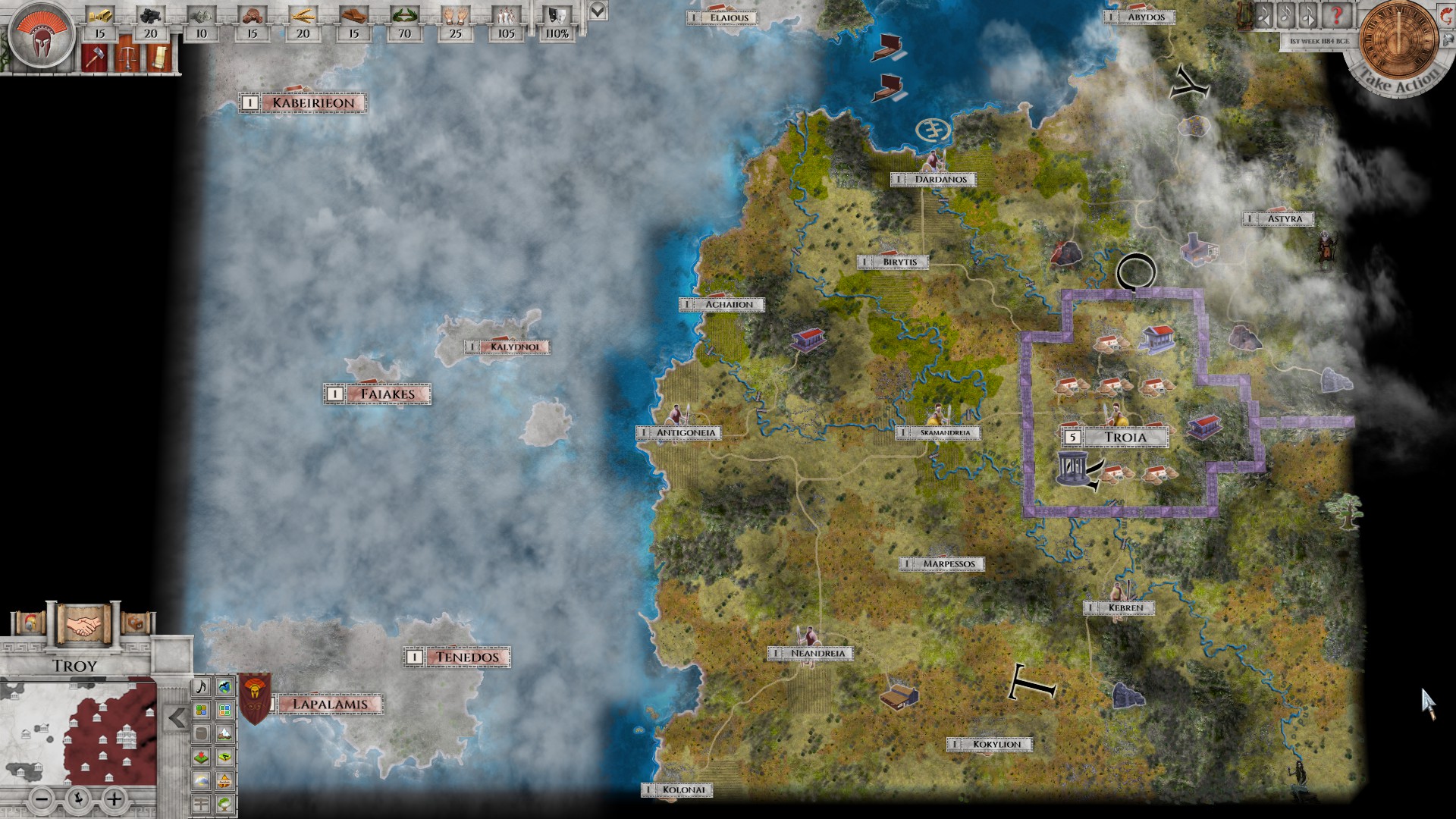
Verdict
Imperiums: Greek Wars is a new 4X contender that is already making waves. With its mix of familiar features and innovations of its own, I can’t say that any other title out there could currently scratch the same itch as this one, which is serious praise when it comes to a genre that’s already got several active competitors that offer excellent experiences. Though it’s overall scope is limited by it only representing a window of time in Greek history, it manages to be a fun and dynamic experience that keeps you engaged with the ‘one more turn’ pull that we love to see. And hey, if you’re a big fan of the pinpoint-focused historical scenarios of other titles, Troy has you covered now too.

